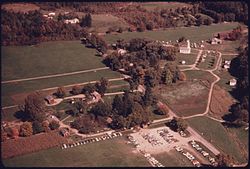
Bath Township is one of the nine townships of Summit County, Ohio, United States. The 2000 census found 9,635 people in the township, a suburb of Akron.
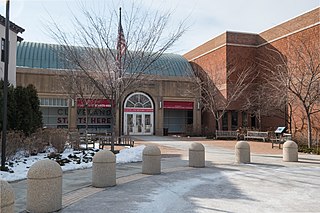
The Western Reserve Historical Society (WRHS) is a historical society in Cleveland, Ohio. The society operates the Cleveland History Center, a collection of museums in University Circle.

James A. Garfield National Historic Site is a United States National Historic Site located in Mentor, Ohio. The site preserves the Lawnfield estate and surrounding property of James Abram Garfield, the 20th president of the United States, and includes the first presidential library established in the United States.

This is a list of properties and districts in Ohio that are listed on the National Register of Historic Places. There are over 4.000 in total. Of these, 73 are National Historic Landmarks. There are listings in each of Ohio's 88 counties.

This is a list of the National Register of Historic Places listings in Hamilton County, Ohio.

This is a list of the National Register of Historic Places listings in Summit County, Ohio.
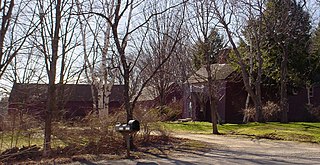
The John Sedgley Homestead is a historic homestead property at Scituate and Chases Pond Road in the York Corner area of York, Maine. Its oldest structure built in the late First Period, probably c. 1715, it is the oldest homestead in the State of Maine that is still in its original setting. Historically the homestead included a cape, farm home, carriage house, stables building, two outbuildings, and a large land holding, all of which is still existing today. The property was listed on the National Register of Historic Places in 1976.

This is a list of the National Register of Historic Places listings in Butler County, Ohio.
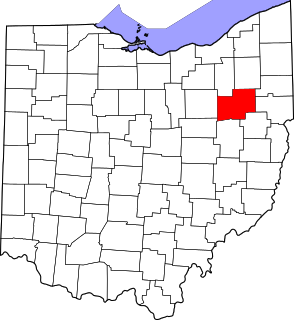
This is a list of the National Register of Historic Places listings in Stark County, Ohio.

This is a list of the National Register of Historic Places listings in Cleveland, Ohio.

This is a list of the National Register of Historic Places listings in Geauga County, Ohio.

The Goll Homestead is a historic farm complex in far western Fulton County, Ohio, United States. Located in German Township northwest of Archbold, the farm has been declared a historic site because of its role in the region's settlement.

The Wallischeck Homestead is a historic group of farm buildings in southwestern Mercer County, Ohio, United States. The family of Philo Wallischeck, all natives of the Grand Duchy of Baden, settled on the site in 1855. For their first ten years, they lived in a log cabin along the road; this arrangement ended when Philo bought a substantially larger area of land in 1866. Starting in that year and continuing until 1880, the family erected a complex of buildings that survive, virtually unchanged, into the present day.

Applethorpe Farm is a historic farmstead in northeastern Ross County, Ohio, United States. Located along Whissler Road north of the unincorporated community of Hallsville, it was established by the family of John Buchwalter in the early years of the nineteenth century. Among the region's earliest settlers, the Buchwalters erected a large log building soon after taking possession of the property. As the years passed, the farm acquired the name of "Applethorpe" because its grounds included the first apple orchard in Ross County.

The Sands-Willets Homestead is a historic house and museum located within the Incorporated Village of Flower Hill in Nassau County, New York.
This is a list of the National Register of Historic Places listings in Cuyahoga Valley National Park.

The Franklin Harris Farmstead is a historic farm complex located outside the village of Salem in Columbiana County, Ohio, United States. Once home to a prominent former soldier, the farmstead includes a high-style farmhouse from the 1890s, and it has been named a historic site.
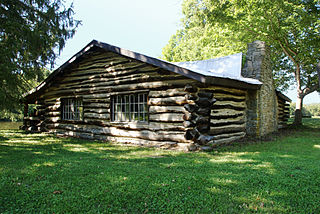
The Pfarr Log House is a log cabin located near the village of Milford in rural Clermont County, Ohio, United States. Built in the early nineteenth century, it provides a pivotal representation of the area's earliest built environment, and it has been named a historic site. This cabin is known primarily as a property of the Pfarr family because it was purchased by George Pfarr in late 1840 as part of a 21 acre homestead, and it remained in the Pfarr family until it was sold to James Wiederhold in 1976. George, a butcher and farmer, immigrated from Bavaria with his wife and three children, and the property was actively farmed until the 1960s by his children and grandchildren.
